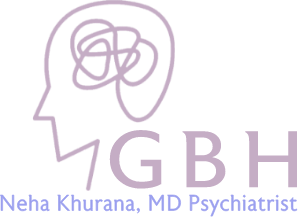
- September 23, 2025
ADHD Symptoms vs Learning Disabilities: A Comprehensive Comparison
What Is ADHD?
ADHD is a neurodevelopmental disorder characterized by inattention, hyperactivity, and impulsivity. There are three types:- Inattentive: Difficulty sustaining focus.
- Hyperactive-Impulsive: Excessive movement and impulsive actions.
- Combined: Symptoms of both inattentive and hyperactive-impulsive types
What Are Learning Disabilities?
Learning disabilities (LDs) are neurological disorders that affect how the brain receives, processes, or communicates information. Common LDs include:- Dyslexia Challenges with Reading.
- Dyscalculi Difficulty with math.
- Dysgraphic Problems with writing.
One Conversation Can Change Everything! Consult Dr. Neha Khurana for ADHD Diagnosis & Personalized Support
Is ADHD a Learning Disability?
ADHD is not classified as a learning disability. While it affects attention and executive functioning which can indirectly impact learning, the difference lies in the nature of interference. It’s important to note the frequent co-occurrence of ADHD and learning disabilities in many individuals.ADHD vs Learning Disabilities: Key Differences
| Feature | ADHD | Learning Disability |
| Main Issue | Attention, impulse control, hyperactivity | Processing or expressing information |
| Type | Neurodevelopmental disorder | Cognitive/processing disorder |
| Learning Impact | Indirect | Direct |
| Treatment | Medication, behavioral therapy | Academic support, IEP/504 plans |
| Co-occurrence | Often coexists with LDs | May occur independently |
Is ADHD a Mental Illness or a Disability?
Classified under DSM-5 as a neurodevelopmental disorder, ADHD is not a traditional mental illness but often co-occurs with conditions like depression. Recognized under ADA and IDEA, ADHD qualifies individuals for accommodations in education and work environments.Why ADHD May Look Like a Learning Disability
ADHD-related inattention, poor organization, and impulsivity can mimic learning disabilities such as dyslexia. Comprehensive evaluations are critical to differentiate ADHD from other disorders and tailor effective interventions.ADHD and Learning Disabilities Together
High comorbidity exists with up to 30–50% of those with ADHD also having a learning disability. This compound can exacerbate academic and emotional struggles, warranting a combined approach to treatment. Signs to look for include:- Struggles with reading, writing, math despite tutoring
- Persistent attention issues
- Effort-performance discrepancy
Diagnosing ADHD vs Learning Disabilities
Diagnosis involves a clinical interview, symptom checklists, neuropsychological testing, and input from teachers. Professionals like psychiatrists and educational specialists play crucial roles in this comprehensive evaluation process.Treatment & Support Options
For ADHD
- Medication: Stimulants and non-stimulants
- Behavioral therapy and executive function coaching
- TMS therapy
- Parent training and accommodations under 504 Plans
For Learning Disabilities
- Special education services and IEP
- Academic therapy and tutoring
- Assistive technology tools
One Conversation Can Change Everything! Consult Dr. Neha Khurana for ADHD Diagnosis & Personalized Support
When to Seek Psychiatric Help
If there are academic struggles despite support, signs of anxiety, depression, social withdrawal, or discipline issues, seek psychiatric help. Adults experiencing personal or professional difficulties due to undiagnosed ADHD should consult with a healthcare professional, such as those at our psychiatric care services.Conclusion
Understanding that ADHD and learning disabilities, while different, often coexist is crucial for accurate diagnosis and effective management. For personalized advice, consider scheduling a consultation with our experts offering psychiatric evaluations and ADHD management.FAQs
Is ADHD considered a learning disability in schools?
No, ADHD is not classified as a learning disability. However, students with ADHD may qualify for academic accommodations through a 504 Plan or an Individualized Education Program (IEP) if their symptoms significantly affect learning.
Why is ADHD not classified as a learning disability?
ADHD primarily impacts attention, focus, and behavior, whereas learning disabilities involve difficulties in processing and developing specific academic skills, such as reading, writing, or math.
Can ADHD and learning disabilities be treated together?
Yes. Many individuals experience both ADHD and learning disabilities. Treatment often includes a combination of behavioral strategies, educational interventions, and supportive therapies tailored to the individual’s needs.
Is ADHD a lifelong condition?
Yes. While symptoms may change or lessen over time, ADHD is generally a lifelong condition. With the right treatment, coping strategies, and support, individuals can manage symptoms effectively throughout life.
